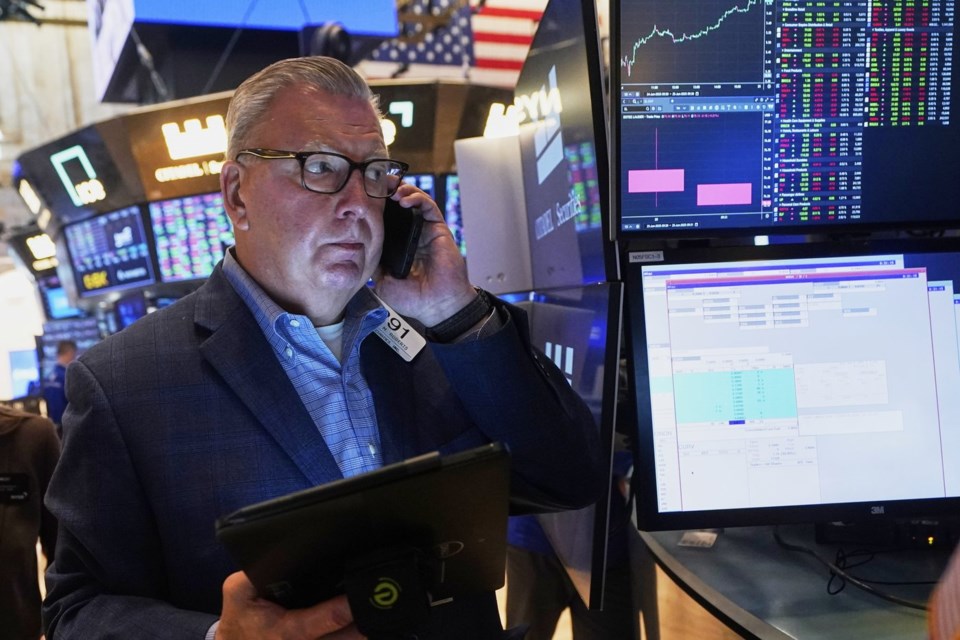TORONTO — Canada's main stock index closed more than 150 points lower on Wednesday as it was weighed down by broad-based losses, while U.S. stock markets were mixed.
The S&P/TSX composite index was down 152.30 points at 26,566.32.
In New York, the Dow Jones industrial average was down 106.59 points at 42,982.43. The S&P 500 index was flat at 6,092.16, while the Nasdaq composite was up 61.02 points at 19,973.55.
Wednesday's performance came after gains on the TSX and U.S. markets a day earlier, seemingly bolstered on Tuesday by hopes that an Israel-Iran war will not disrupt the global flow of crude oil.
"I don't think it's necessarily a reversal. I think maybe it's the correction of the euphoria we had yesterday," said Hadiza Djataou, vice-president and portfolio manager at Mackenzie Investments, in an interview.
"Because people also realize that while the ceasefire has been announced and the U.S. administration has been quite vocal about what a success it's been, we still have not necessarily heard from Israel in a very firm tone that they will now sit on the sideline," she said.
U.S. stocks hung near their all-time high on Wednesday as financial markets caught a breath. A fragile ceasefire between Israel and Iran appears to be holding, at least for the moment.
Djataou said there had been fears in the market that the conflict would be a "major geopolitical event."
She also highlighted that markets may be "overlooking" risks related to tariffs announced by U.S. President Donald Trump on April 2 that have been put on hold until July 9.
The Canadian dollar traded for 72.80 cents US compared with 72.93 cents US on Tuesday.
The August crude oil contract was up 55 cents US at US$64.92 per barrel. Gains in oil prices on Wednesday came after a decline the previous day.
"First and foremost, in commodities and oil in particular, there is a lot of speculative actions coming from various types of fast money investors. So the move is not necessarily supportive of a specific narrative," Djataou said.
"Iran has actually been able to deliver all the oil supply that was needed. And there hasn't been any shortage of supply in oil so far. So the trading in oil is, I think, more speculative at this point."
U.S. Federal Reserve Chair Jerome Powell said again on Wednesday that he wants to wait and see how Trump’s tariffs affect the economy and inflation before committing to its next move.
In testimony before a Senate committee, Powell echoed many of his statements from the day before, when he spoke at the House of Representatives, and he said, “For the time being, we are well positioned to wait to learn more about the likely course of the economy before considering any adjustments to our policy stance.”
"The market is really expecting the Fed to cut rates. And in an environment where the market is expecting the Fed to cut rates, it's typically very supportive for risk assets," Djataou said.
The August gold contract was up US$9.20 at US$3,343.10 an ounce.
This report by The Canadian Press was first published June 25, 2025.
Companies in this story: (TSX:GSPTSE, TSX:CADUSD)
Daniel Johnson, The Canadian Press



